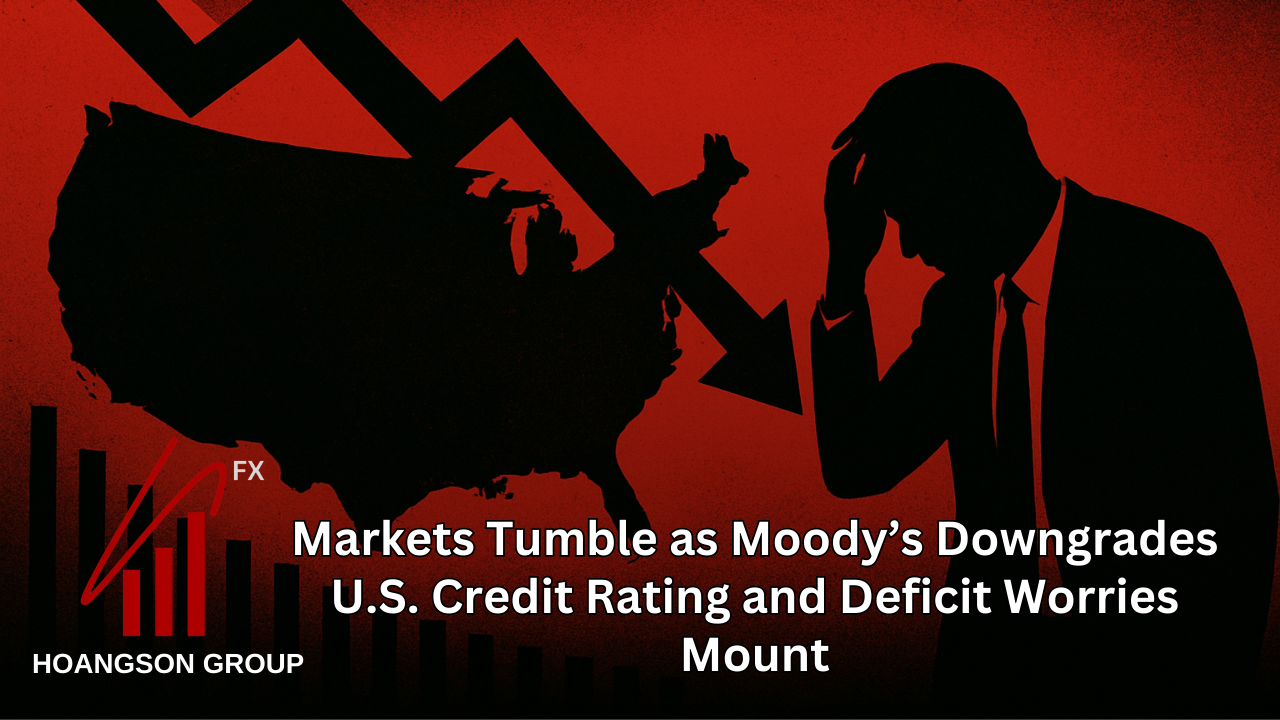Global financial markets are on edge after a wave of negative fiscal news from the United States sparked fresh investor concerns and sent U.S. stock futures, the dollar, and government bonds tumbling.
Dow Jones Industrial Average futures, along with S&P 500 and Nasdaq-100 contracts, slipped sharply early Monday following Moody’s Ratings’ decision to strip the United States of its final triple-A credit rating. The downgrade comes amid mounting fiscal deficits and soaring interest costs, reflecting growing unease over America’s long-term debt trajectory.
Adding fuel to the fire, the House Budget Committee on Sunday passed President Trump’s sweeping tax-and-spending proposal — a controversial bill projected to add trillions of dollars to the national deficit. While the legislation faces further hurdles in Congress, analysts warn of a lack of any meaningful deficit controls at this stage.
“There are no signs of serious deficit restraint,” said Jim Reid, a strategist at Deutsche Bank.
The fiscal turbulence sent the dollar lower against most major currencies. The WSJ Dollar Index retreated, while yields on longer-dated U.S. Treasurys surged above 5%, with 30-year yields reaching levels not seen since late 2023.
Market sentiment was also dampened by international developments. The European Union downgraded its economic growth forecast, citing ongoing trade tensions. Beverage giant Diageo — known for brands like Smirnoff and Johnnie Walker — warned of a $150 million tariff-related hit, although it expects to offset about half through pricing and supply-chain measures.
Meanwhile, President Trump reignited the trade rhetoric by criticizing Walmart for suggesting it would raise prices due to tariffs. Trump insisted both the retailer and China should “eat the tariffs,” intensifying uncertainty in global trade relations.
Stock indices slid across Europe and much of Asia in response to the developments, while gold prices resumed their upward march, nearing record highs once again as investors sought safe-haven assets.
The financial community now turns its focus to Washington, where lawmakers must grapple with the consequences of a deteriorating fiscal outlook — and a shaken credit standing — that may reshape global risk appetite in the days ahead.
Prev Article
Honoring the 135th Anniversary of President HO CHI MINH’s Birth
Next Article
We're Hiring: FX Sales (IB, MIB) for HS-Markets
